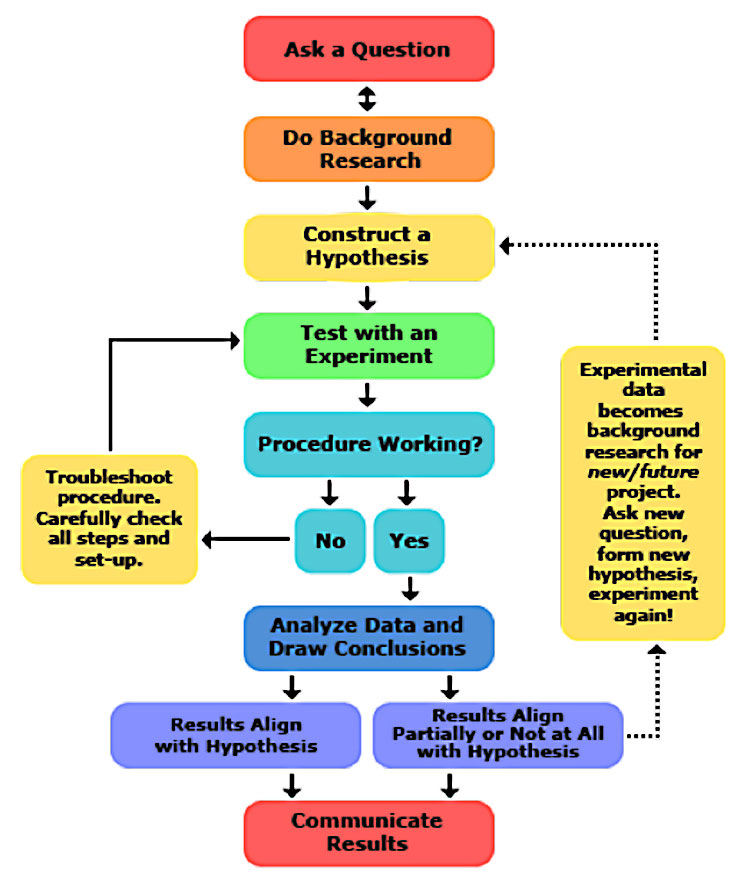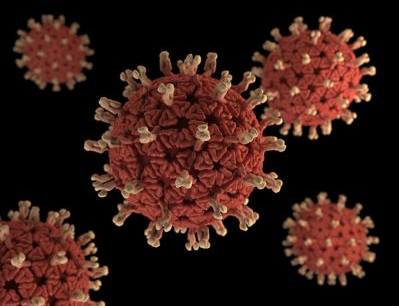By Ron Conte, Pharm.D.
As of April 12, we have no known drug therapies for COVID-19. Hundreds of clinical studies are being conducted involving antivirals, combinations of antivirals with antibiotics or steroids, combinations of antivirals, as well as the search for a preventative vaccine.
Statements such as “…it is worth trying (hydroxychloroquine). What have you got to lose?” are contrary to carrying out what is termed “the scientific method.” Figure One outlines the steps necessary for the scientific method.
 Figure One. Steps Involved with the Scientific Method. Courtesy of Science Buddies.
Figure One. Steps Involved with the Scientific Method. Courtesy of Science Buddies.
All experiments, including clinical studies, follow the scientific method.
The question may be “Is there a drug effective in treating COVID-19?”
Some of the background research includes drugs to treat Severe Acute Respiratory Syndrome (SARS), including the 2005 study where hydroxychloroquine was studied in the treatment of coronavirus.
Let’s zero in and use hydroxychloroquine as an example throughout this article. Previous studies failed to show promising results of hydroxychloroquine. Possibly dosing changes are needed. Maybe the timing of when hydroxychloroquine was given during the progression of the disease needs to be modified. And, maybe the toxicity of hydroxychloroquine outweighed the benefits. We do know hydroxychloroquine used in the treatment of malaria and lupus erythematosus produces significant side effects, including long-term life threatening cardiac dysfunction and irreversible retinal damage of the eye. Would COVID-19 patients be at a higher risk of developing these severe side effects or even other, currently unknown, toxic effects?! As a result of this background research, further studies are warranted. So, the hypothesis more than likely would be stated as a null hypothesis: Hydroxychloroquine is not a safe and effective drug to treat COVID-19.
Experiments would entail various phases of clinical studies. Hydroxychloroquine may be approved by the Food and Drug Administration (FDA) for “fast track” experimentation, including an approval to provide the drug for “compassionate use.” Experiments will include productive and nonproductive data points, determining if the study should be modified. Data may be so undesirable, a high percentage of patients die from hydroxychloroquine’s effects, that the experiment is terminated, and the null hypothesis has been proven. Whatever the outcome from hydroxychloroquine studies, this becomes background research now for future experimentation.
If the null hypothesis is disproven, hydroxychloroquine becomes approved by the FDA as a new therapy with a new indication for use. If the drug shows to be of benefit in treating COVID-1, the FDA may reserve use of hydroxychloroquine for only severe cases of COVID-19. Furthermore, hydroxychloroquine may be limited to specific cases due to associated warnings and/or contraindications.
Keep in mind that drugs approved for “fast track” experimentation will lack long-term data, most importantly potentially harmful toxicity. Those who are administered hydroxychloroquine with FDA approval to treat COVID-19 become test-subjects and the data from their use of the drug also become background research.
The experimentation to prove or disapprove the hypothesis may take several weeks to months. I personally believe COVID-19 treatment will include a combination of drugs as well as a vaccine. Remain vigilant and take pride in the fact that we have some of the best clinical researchers in the world. Anecdotal findings and statements made by non-scientists who think they have pertinent information about treating COVID-19, without employing the scientific method, are harmful to all of us.
Please take care. Be safe. Observe the stay at home orders and care for one another.
•••
Ron Conte is at [email protected].



